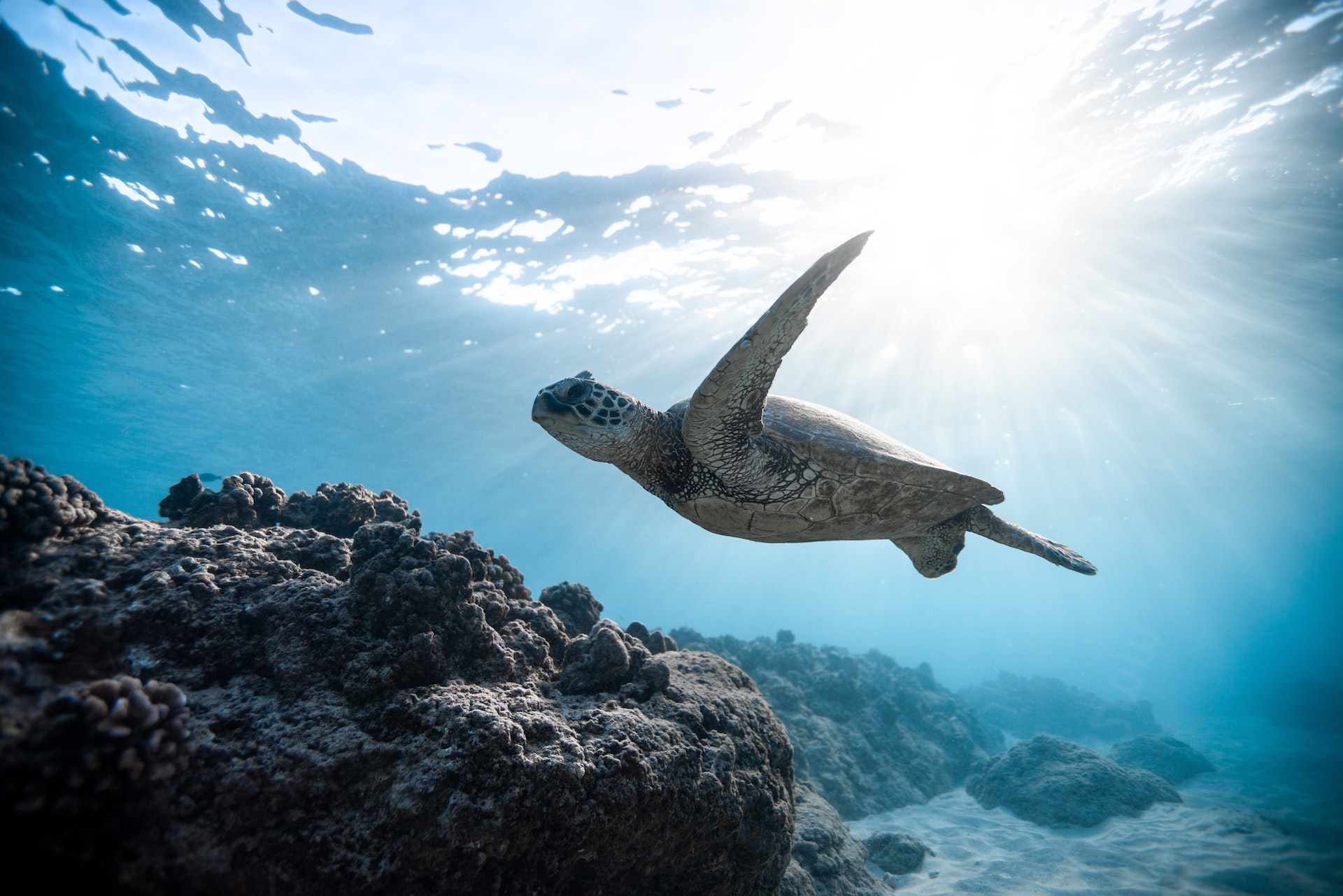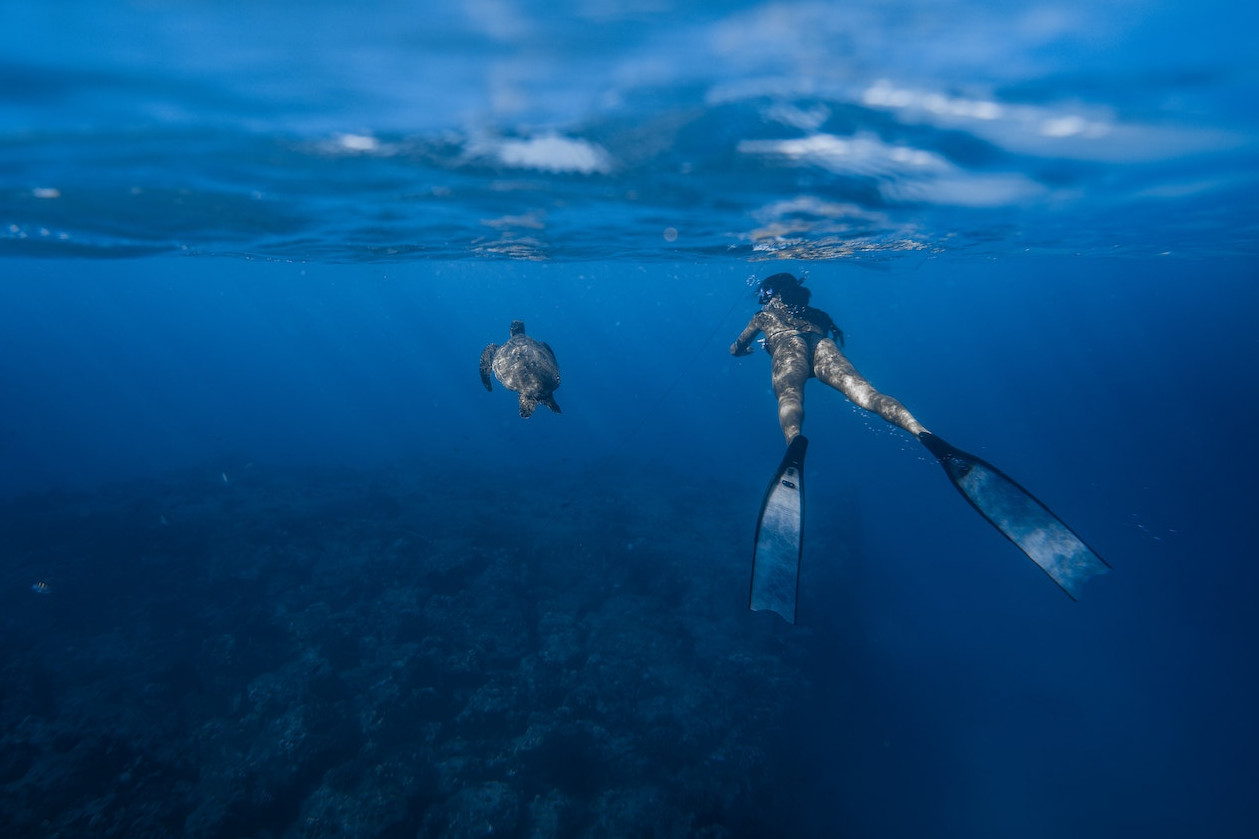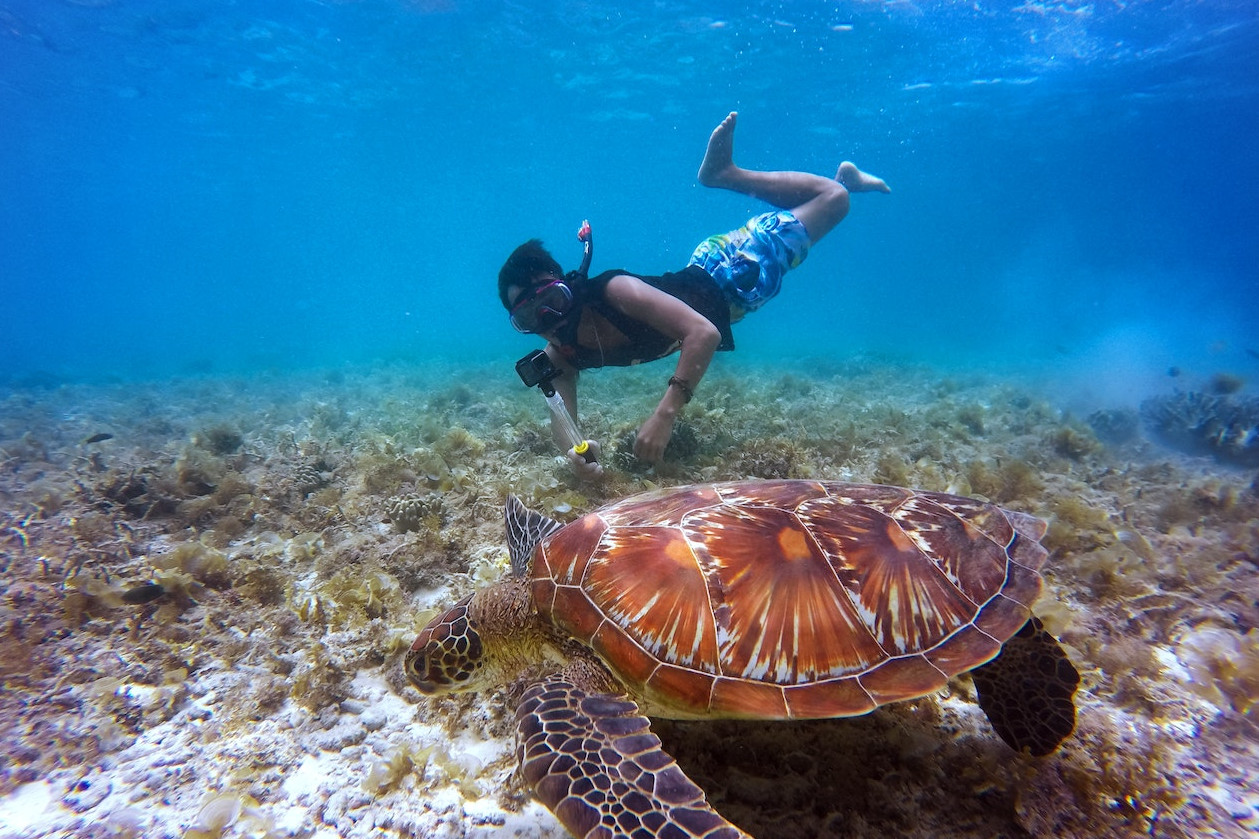As you have probably already seen, Martinique is home to many sea turtles, which come feed in the warm Caribbean waters. Furthermore, from March to October, you may come across female turtles nesting on the beaches at night, or babies emerging from their eggs and rushing down to the ocean.
All three of the local species nest on Martinique’s beaches. At birth, the babies immediately head out to sea, and only the females will ever return on land, to lay their own eggs.
Only 1 out of 1000 sea turtles will make it into adulthood, and six out of the seven sea turtle species in the world are endangered…
So, what can we do?
Respect and protect!
Positive actions:
Remember that turtles are wild animals; give them space to avoid them being stressed by your presence, and do not touch them. By respecting a few simple guidelines, we can peacefully share the same waters as these beautiful creatures.
On the water:
- Reduce your speed, keep a look-out for any turtles coming up for air.
- Do not anchor in seagrass, as the chain will destroy the grasses our turtles need to live.
In the water:
- Swim calmly, do not chase the turtles. Make sure to give them plenty of space: avoid positioning yourself above or in front of them, as this may stop them from easily coming up to breathe.
On land:
- Give the females plenty of space when they come up to nest, as they might not lay their eggs if they are stressed.
- Avoid artificial light, which can disorient the hatchlings as they try to find the ocean.
- Do not pick the baby turtles up!
- If necessary, clear a path down to the ocean. Stay out of the way and keep any predators (including dogs!) away.
If you come across an injured turtle:
RETOM tel: 0696 234 235
Here for a while and want to help? Contact Réseau Tortues Marines Martinique to volunteer!
Together, let’s help protect sea turtles so they can keep our oceans magical 🙂
Thank you!
Martinique’s Sea Turtles
Did you know?
- Very little is known about the first couple years in sea turtles’ lives, when they go out to the high seas to grow. Because of this, this period is called “the lost years”.
- The sex of the baby turtles is determined by the temperature at which the eggs are incubated: low temperatures lead to more males, while higher temperatures will create more females. The temperature at which the male/female sex ratio is about even is called the pivotal temperature, and is around 29°C in the Caribbean.



